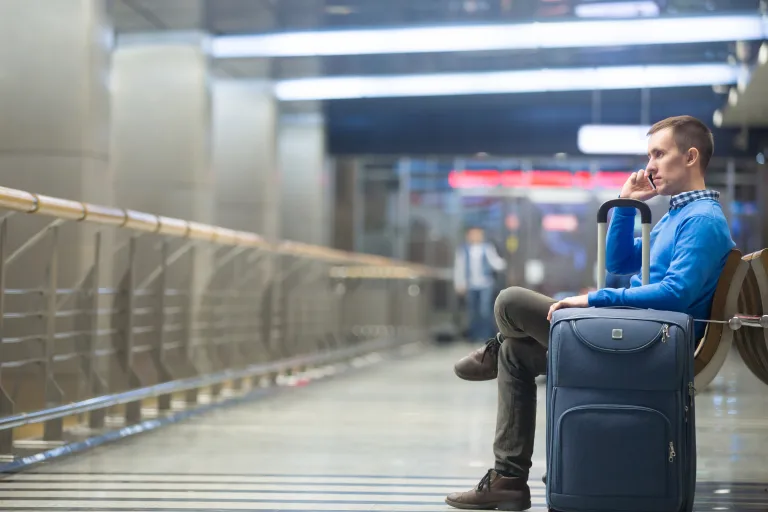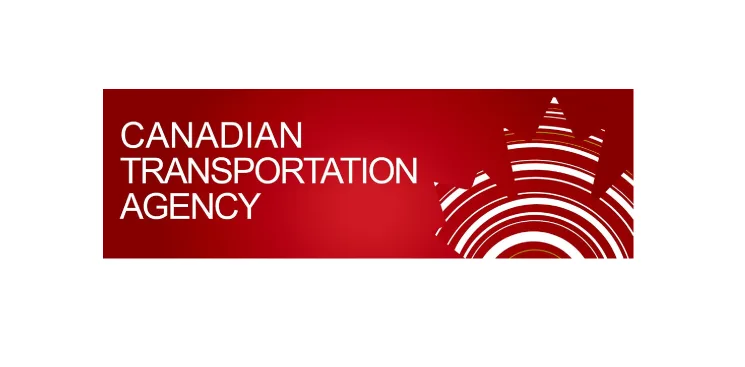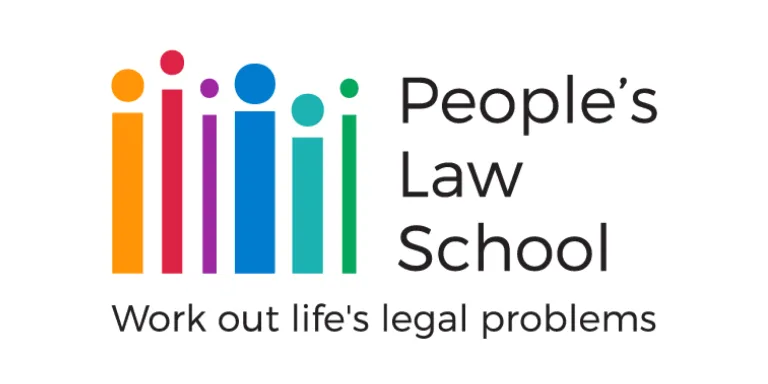Flight rights

Flight cancelled? Got "bumped"? You arrived but your luggage didn't? If something goes wrong when you fly to, from or within Canada, you have legal rights.
What you should know
Your rights are set out in the airline’s tariff (a fancy word for their contract with you), with other minimum protections imposed by our laws. Quick reminder — these rules apply to flights within, originating or landing in Canada.
The airline’s tariff includes your rights and obligations as a passenger, plus the airline’s responsibilities to you. All airlines have their own tariff.
Tariffs must be reasonable, fair, and easy for you to find. And they must comply with our laws — namely, the Air Passenger Protection Regulations.
There's an online resource that explains how these regulations can help you. More on the APPR.
Airlines have to communicate clearly with you. Any ad for a flight must include, prominently, the total price you have to pay. It has to give you a breakdown of all the fees that go into the total price. And it has to tell you about any blackout periods or other limits to travel.
In addition to following the rules on ads, airlines also have to:
inform you of their policies (think: excess baggage fees) in a clear and simple way
tell you about your rights, and what you can do if those rights are violated
give you reasons for a flight delay, and provide regular status updates
make sure they’re communicating clearly to persons with disabilities
Bad weather, mechanical issues, new crew members — these things happen, and sometimes your flight is delayed or cancelled. So what are your rights?
If your flight is delayed
If a flight is delayed, airlines usually don't offer you compensation if the situation was unavoidable, due to weather conditions, or circumstances outside their control. (They often call this an “act of God”.)
If the situation was avoidable, then you’re entitled to compensation.
The airline may try to offer you food or trip vouchers, or an overnight stay in a hotel. They may ask you to sign something confirming you’ve been compensated. But you may be entitled to more.
After a delay of two hours, the airline has to give you food and drink and offer free wifi or phone calls.
If a delay runs overnight, airlines have to offer hotel or other accommodation for free.
And then there’s cash compensation.
Large airlines must pay you $400 for a delay of between three and six hours, $700 for a delay of six to nine hours, and $1,000 for a delay of nine hours or more. Small airlines must pay $125, $250 and $500, respectively, for those same delays.
Large airlines are those that have carried more than two million passengers in each of the two preceding years. Examples of large airlines include Air Canada, WestJet, Air Transat, and Flair Airlines. The size of the airline is listed in the terms and conditions of your ticket.
If you miss a connection
If you miss a connecting flight because a plane is delayed or has been re-scheduled, a couple of things could happen. Your rights depend on whether you booked your journey on one or multiple tickets.
If the flights are all on the same ticket, the airline will try to get you onto the next available flight. If that isn’t possible, they’ll usually offer to refund the unused portion of your ticket.
If the flights are on multiple tickets, or with different airlines, then you likely won’t be protected. This is a risk you take by booking separately.
If your flight is cancelled
If you find out about the cancellation less than 12 hours before your scheduled departure, the airline has to provide food and drink and free wifi or phone calls.
Once a delay reaches three hours, the airline has to rebook you on their next available flight, in the same class of service.
If the rebooking doesn’t meet your travel needs (for example: you missed the conference), you’re entitled to a refund of your ticket, as well as compensation for the inconvenience: $400 for large airlines and $125 for small airlines.
You may also be owed compensation for out-of-pocket expenses, such as a taxi ride or hotel room.
Airlines often overbook flights. When this happens, the airline must first ask for volunteers willing to take cash in exchange for a later flight. Only if that fails to make space can a passenger be denied boarding (“bumped”) involuntarily.
Airlines will usually help passengers who are bumped find a seat on the next available flight at no additional cost.
Airlines are required to offer compensation to passengers who are bumped. The rules provide for minimum levels of compensation in these situations:
a delay of zero to six hours means $900 in compensation
six to nine hours: $1,800
more than nine hours: $2,400
What happens if your luggage is lost, damaged or delayed depends on the airline. The tariff will set out the terms that apply, subject to minimums imposed by law.
Typically, there’s a process you follow to make a claim, a time limit to file that claim, and a maximum amount the airline will compensate you.
Compensation
If your bag was lost, damaged or delayed, you can claim expenses up to approximately $2,300.
The airline must also give you back your checked-baggage fees. They typically won't just do this unless you ask for it. Google "delayed bag claim" to access Westjet and Air Canada's online forms for this.
How to claim
First, submit a written claim with the airline within 7 days for delayed baggage, and 21 days for lost baggage. The airline may have an online form, or you may need to send them a letter.
Make sure you have copies of receipts showing your expenses. Airlines don’t have to reimburse you if you don’t have proof!
The airline is also responsible for hand-delivering any lost or delayed luggage.
Work out the problem
Here’s a summary of the steps you can take.
Step 1. Contact the airline
Step 2. Send the company a letter
Step 3. File a complaint with the Canadian Transportation Agency
Step 4. Tell your story on social media
Step 5. Take them to court
Step 1. Contact the airline
If you have a problem with a flight, give the airline the first chance to solve it.
If you’re at the airport, try to speak with a company agent. Or call their customer service department. Wait on hold 🙄. Calmly and accurately describe the problem and what you want the airline to do to solve it.
Request specifics about how and when something will be done, and get the other person's name in case you have to refer to this conversation later. Tell them what you want, whether it’s a refund or to rearrange your flight.
Write down any details of your complaint and keep it in your file. Make sure to date your notes.
Step 2. Send the company a letter
If discussing things doesn’t make anyone’s day any better, write a letter. Include:
your name, address and contact number
a summary of the problem and the resolution you’re hoping for
copies of your airline ticket and any other supporting documents
Send the letter to the airline’s customer services department or the contact specified in any complaint procedure the airline has in place.
Check the airline’s tariff or go to their website for details on their procedure. (If you want to be sure they receive your letter, send it by registered mail.) Keep a copy for yourself.
Allow the airline 30 days to respond.
Step 3. File a complaint with the CTA
If the letter doesn’t resolve the problem, file a complaint with the Canadian Transportation Agency. You can do so online, through the CTA website.
Step 4. Take to social media
If none of the above gets you what you want, consider telling your story online. Be factual and truthful about what happened — using foul or insulting language will do you no favours.
You may not get a refund, but a company may be eager to make things right to prove they’re good corporate citizens.
Step 5. Consider legal action
If you still can’t solve the problem with the above steps, your last resort may be legal action. This step can be costly and time-consuming. You should look at all other options before suing.
Note that there are time limitations on filing lawsuits. If you don’t have a lawyer, there are options for free or low-cost legal help. We'll touch on them shortly.
What to go further? See our in-depth info on flight rights.
Who can help
There are options for help if you’ve had an issue with a flight.

Canadian Transportation Agency
Helps resolve disputes between passengers and airlines operating in Canada.
If your flight rights have been violated, consider getting legal advice.

BC Legal Referral Service
Helps you connect with a lawyer, notary or paralegal for a free 15- to 30-minute consult to see if you want to hire them.

Access Pro Bono's Legal Advice Clinics
Volunteer lawyers provide 30 minutes of free legal advice to people with low or modest income.

UBC Law School's Student Advice Program
Law students provide help to people with limited means in the Vancouver area.

Community Legal Assistance Society
Free legal assistance on workers’ rights, human rights, and mental health rights.
This information from People’s Law School explains in a general way the law that applies in British Columbia, Canada. The information is not intended as legal advice. See our disclaimer.

